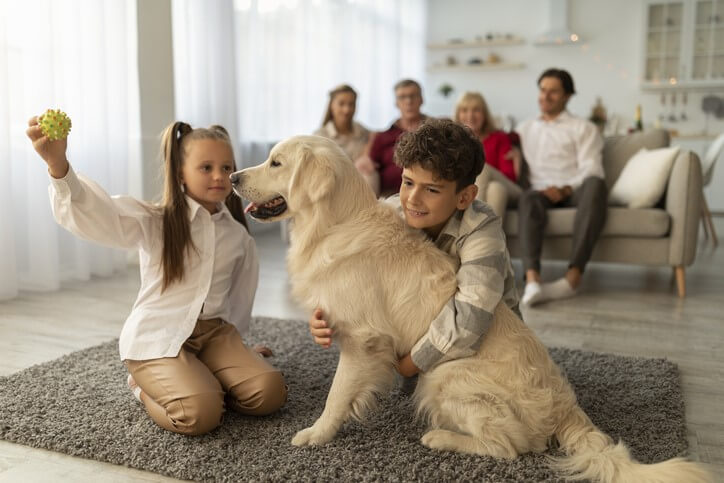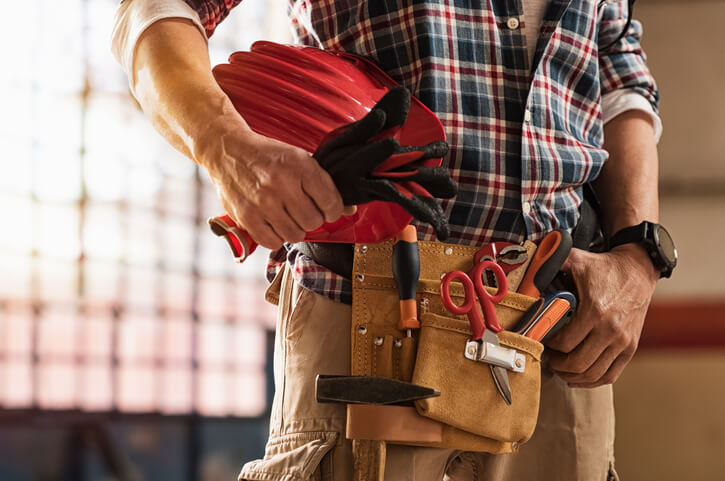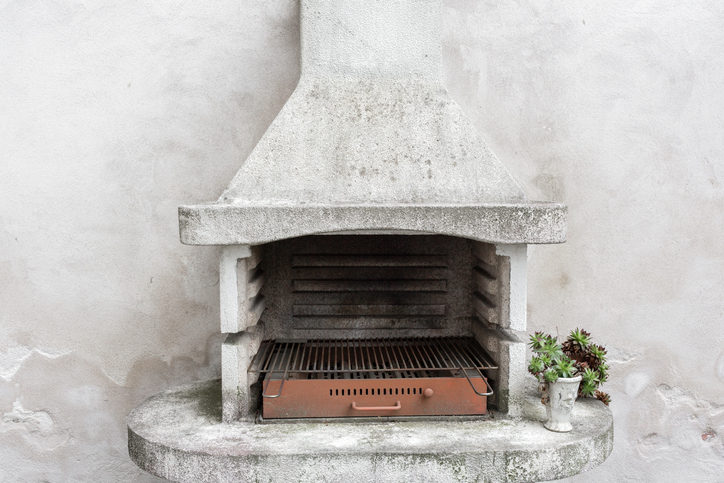Just like humans, our pets need a little bit of extra love and care as they get older. If you’re caring for a senior pet, there are some important things to consider in order to keep your furry friend healthy, happy, and safe. Pet owners with senior cats and dogs may need to make a few changes to accommodate an older animal at home.
This guide provides you with some helpful pet-proofing tips for preparing your home, as well as how to care for your senior dog or cat so you can keep a healthy and happy pet during their golden years.
Start with a senior pet plan
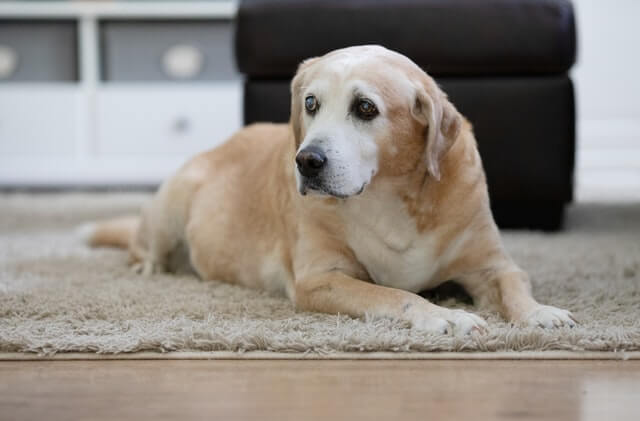
As your pet ages, it’s crucial to develop a plan to ensure that they remain safe, healthy, and happy at home. Here are some tips to help you get started:
- Determine where they’ll sleep: If your pet sleeps on the bed, consider adding a set of pet-friendly stairs to the side of your bed so they can access it more easily. Keep your pet’s bed closer to their food and water, so they don’t have to go as far to access it. Older cats can start to sleep closer to the litterbox, too. Provide your senior pet with a warm, soft surface to sleep on. Memory foam beds are available for dogs and cats to help support them as they slumber. An orthopaedic dog bed offers more support than a standard dog bed
- Consider a homemade diet: Transitioning to homemade cat food or dog food can be beneficial for senior pets, as it allows you to tailor their nutrition to their specific health needs and preferences. Work with your veterinarian to create recipes that meet your pet’s dietary requirements.
- Decide where your pet will stay when you’re away: When going out of town, a house sitter is the best option since it will allow your senior pet to remain in the comfort of their own home. If you must put them in a temporary facility, make sure that the place you choose has experience working with senior pets.
- Think about your pet’s routine: Examine your pet’s daily habits, including when and what they eat and their behaviors. If you start to notice changes, it’s a good idea to take them to the vet for a check-up. You may need to adjust some things, such as their diet and how much exercise they need as they age. It’s also an excellent time to start preparing your home to accommodate your pet, which we’ll discuss later.
- Prepare for common problems: As animals age, they may encounter some issues, including:
- Anxiety: Dogs and cats tend to become more anxious as they age. Make sure they’re as comfortable as possible as often as you can to help reduce feelings of anxiety.
- Health problems: While every pet is different, some common health problems in senior pets include gaining or losing weight, dental issues, arthritis, and loss of eyesight. You may need to start grooming them more and develop a dental plan, including brushing their teeth to prevent tooth decay, for example.
Preparing your home for a senior pet
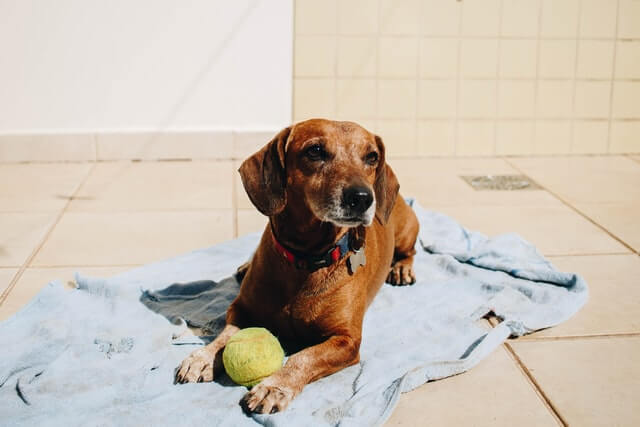
When your pet gets to be of a certain age, you’ll need to take some steps to prepare your home to make it safe and comfortable. It’s also recommended that you contact a local handyperson who can help you with specific home improvement needs that you can’t do yourself.
- Floors: If you have hard-surface floors such as hardwood or tile, add some area rugs to prevent your pet from slipping and falling. Limit access to rooms with these types of floors when you’re not at home to avoid accidents.
- Stairs: Just like elderly humans, pets can have difficulty getting up and down the stairs as they age. Consider installing ramps to make it easier for them to go upstairs and include a small set of pet-friendly stairs or a small ramp by your bed, so it’s easier for them to get there.
- High places: Ramps can also help get your senior pet to high places, such as the inside of your vehicle. Many ramps are lightweight and portable so that you can take them with you on the go. Use a carrier to transport your senior pet, so they don’t have to jump up and down as often.
- Cover up door edges, chair, and table legs: Protect your pet from sharp edges and corners on furniture and doors by adding a bumper made of soft foam or cloth. There are several different types of “safety bumpers” available to purchase that won’t damage your furniture.
- Cover/hide wires and cables: Always keep wires and cables safely hidden using a wire manager or cover. This applies to young and old pets alike, as well as children.
- Baby gates: Use a baby gate to keep your pet confined to one area. Make sure the gate is snug, sturdy, and that they cannot jump over it or knock it down easily for safe pet-proofing.
- Indoor Potty Station: Set up an indoor potty station with “pee pads” or newspapers for senior dogs. For senior cats, swap your litterbox with something that has lower sides, so it’s easier for them to get in and out of it.
How to make your home senior pet-friendly
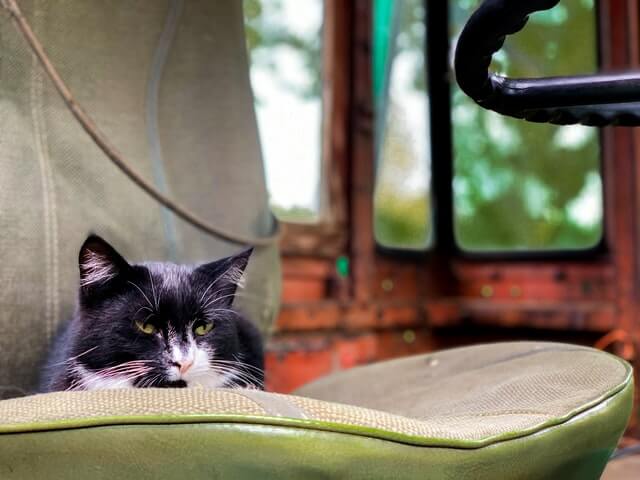
You can do some things to make sure that your home is more friendly and safe for your senior pet. Here are some more tips to consider so that your dog or cat will remain content in their golden years.
- Keep your home at a comfortable temperature: Try to avoid making your home too hot or too cold, as it can irritate conditions like arthritis and allergies. Certain breeds cannot adjust their body temperature as they age, so give them a sweater to keep them warm at night and during the winter months.
- Use easy-to-use food and water dishes: Look for large food and water bowls that are easy for senior pets to see and to use. Choose weighted bowls that won’t tip over and try an automatic feeder, so they always have access to meals.
- Remove trip hazards: Look around your home and remove any possible trip hazards such as stray cords or small objects that could be in your pet’s way.
- If his eyesight is going: Learn the symptoms of vision problems in cats and dogs and talk to your veterinarian about possible treatment plans. Animals rely on other senses like smell to get around as their vision fades, so make sure your home is as easy for them to navigate as possible. You can also train your senior pet to learn new commands that will help them get around.
- Use an accessible litter box: For senior cats, make sure you choose a litter box that’s easy for them to access. Choose litterboxes with low sides so they can get in and out of them as easily as possible.
- Keep a peaceful home to help them sleep: Try to keep your home as quiet and as comfortable as possible. This will not only help your pet sleep better but will also help to reduce the anxiety associated with aging.
- Don’t rearrange the furniture: Leave your furniture exactly as it is to avoid confusing your pet. Older animals do better when they’re familiar with their surroundings, which will help reduce the potential for an accident or injury.
- Keep your home clutter-free: Remove excess clutter and obstructions from your home. Giving your pet a clear and open environment is the best way to keep them safe.
Taking good care of your senior pet at home
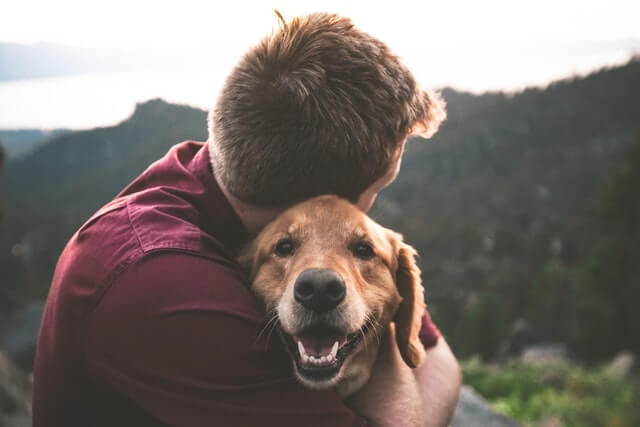
Once you’ve set up your senior cat and dog-friendly home, keep these care tips in mind to ensure they remain healthy.
- Find a nearby vet: Look for a vet you trust who is as close to your home as possible. Not only will this reduce anxiety in your pet, but the vet will be closer to you just in case there’s an emergency.
- Stock up on supplies: Make sure you have plenty of supplies for your senior pet, including all of their medication and special treatments they may need. Stock up on diapers, special toys, and buy a ramp or set of pet-friendly stairs before they have difficulty.
- Don’t let health problems go unnoticed: Learn about the signs of health issues in older pets, and always consult with your vet as soon as you notice any symptoms. The sooner your pet can get diagnosed, the sooner they can receive the treatment they need.
- Administering medication at home: Learn how to administer medication to your pets at home, so you don’t need to visit the vet every time. Ask your veterinarian about the easiest ways to give medicine to your pet. Pill pockets are a great way to give most dogs and cats tablets, pills, or capsules.
- Keeping senior pets happy and healthy: Do everything you can within reason to keep your senior pet as happy and healthy as possible. Providing a comfortable place to sleep and taking care of their health with your vet is the best way to ensure they live a happy life in their later years.
Understanding home insurance coverage for your pets
Home insurance is essential for homeowners looking to protect their property and finances from unexpected incidents. However, many homeowners may wonder if their home insurance policy covers their pets in the event of an accident or injury. While home insurance policies typically do not provide coverage for your pets themselves, they may offer liability coverage in case your pet causes damage to someone else’s property or injures someone.
Liability coverage is a standard component of most home insurance policies and is designed to protect you financially if you are found liable for causing harm to someone else or their property. For example, suppose your pet causes damage to someone else’s property or injures someone. In that case, your home insurance policy may provide coverage for any resulting damages up to the limits of your policy.
However, it’s important to note that not all home insurance policies offer the same level of liability coverage, and exclusions can vary widely among providers. Some policies may exclude coverage for certain types of pets or incidents, so it’s important to carefully review your policy to understand what is covered and what is excluded.
In addition to liability coverage, some home insurance policies may offer additional coverage options for pet-related incidents, such as damage to your property caused by your pets. Again, it’s important to review your policy to understand what coverage is available and work with your insurance provider to ensure that it meets your needs.
The bottom line is that while home insurance policies do not typically cover your pets themselves, they may provide liability coverage if your pet causes damage to someone else’s property or injures someone. Therefore, if you have a pet, it’s important to review your home insurance policy to understand what coverage is available and ensure that you have adequate protection for your home and your furry friend.
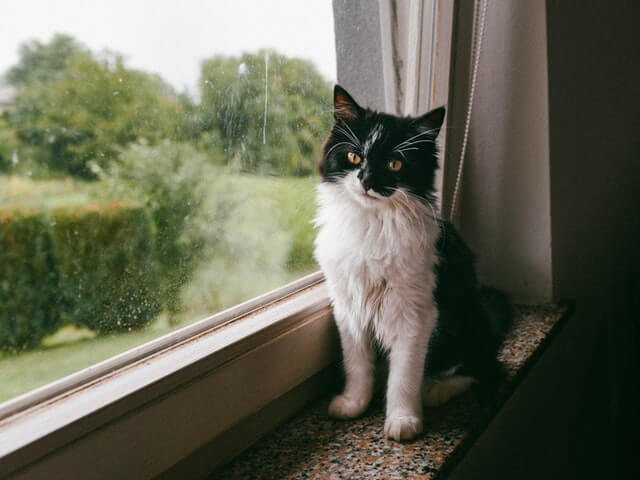
Watching your pet age can be difficult, but the process is easier when you know how to put the right plan in place. Use these tips to prepare your home for your senior dog or pet. With some simple changes and some diligence, you can ensure that your senior pet is as happy and as healthy as possible.
